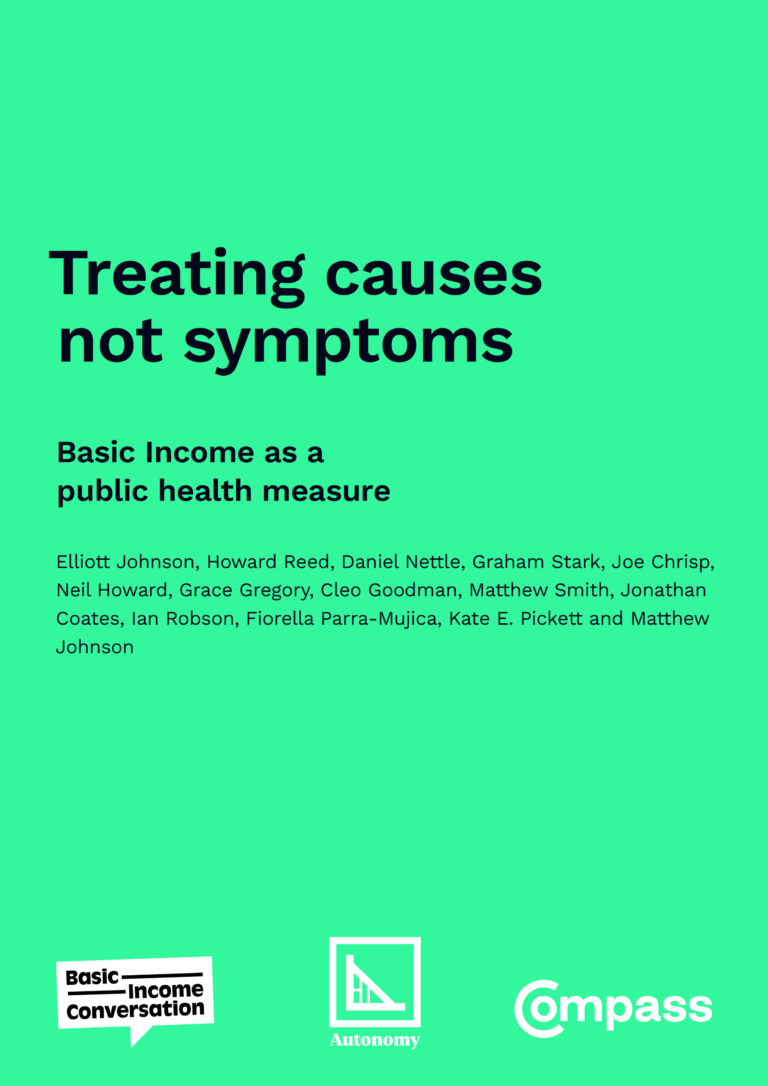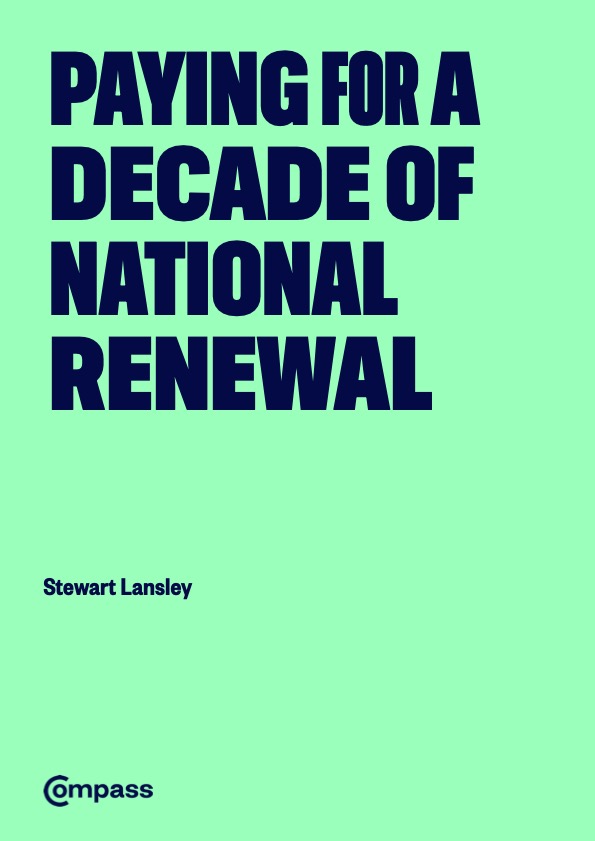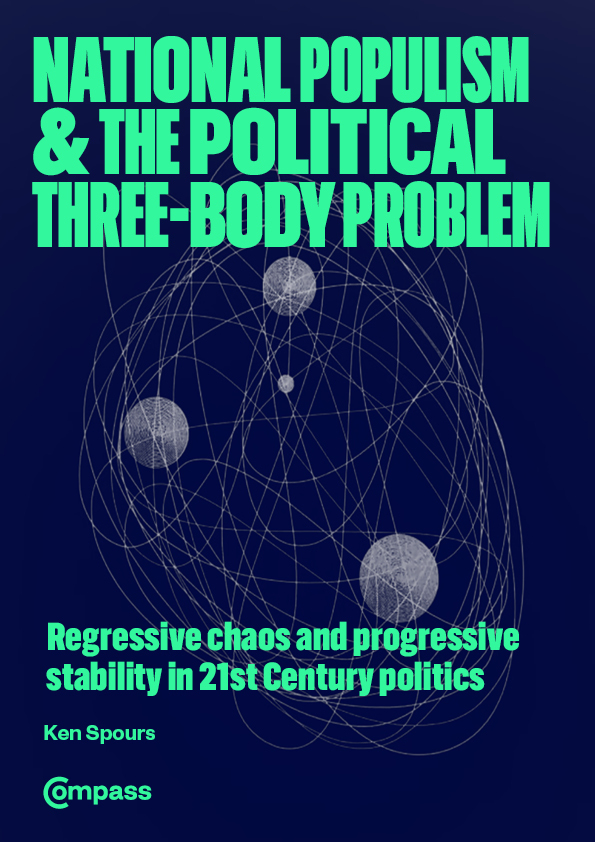Treating causes not symptoms: Basic Income as a public health measure

This is groundbreaking new research lays out the public health impact of a Basic Income – and how much it could save our NHS.
Researchers at the Universities of Northumbria, York, Bath and Strathclyde, in collaboration ourselves and Autonomy, have presented groundbreaking evidence on the role that Basic Income can play in dealing with our public health crisis.
‘Treating causes not symptoms: Basic Income as a public health measure’ uses a range of economic and health modelling, public opinion surveys and community consultation to present cutting-edge evidence on the impact of Basic Income schemes.
Public health impact:
- Between 125,000 and 1 million cases of depressive disorders could be prevented or postponed.
- Between 120,000 and 1.04 million cases of clinically significant physical health symptoms could be prevented or postponed.
- Between 130,000 and 655,000 quality-adjusted life years (QALYs) could be gained, valued at between £3.9 billion and £19.7 billion.
- Based on depressive disorders alone, NHS and personal social services cost savings in 2023 of between £125 million and £1.03 billion assuming 50% of cases diagnosed and treated.
Economic impact:
- Even a more ‘modest’ basic income scheme (£75 a week, £3,900 a year) would reduce child poverty to the lowest level since comparable records began in 1961 and achieve more at significantly less cost than the anti-poverty interventions of the New Labour governments.
- Child and pensioner poverty down by at least 60% each
- Working age poverty down by between 29% and 75% depending on the scheme
- Inequality down 55% to the lowest in the world under the most ambitious scheme
Building on previous findings, according to new polling conducted via prolific.co, the report also found the British public prefers a more generous Basic Income scheme that significantly reduces poverty and inequality and improves physical and mental health. They also want to fund those schemes through new wealth and carbon taxes and increased corporation taxes, but also view small increases in income tax as tolerable.



